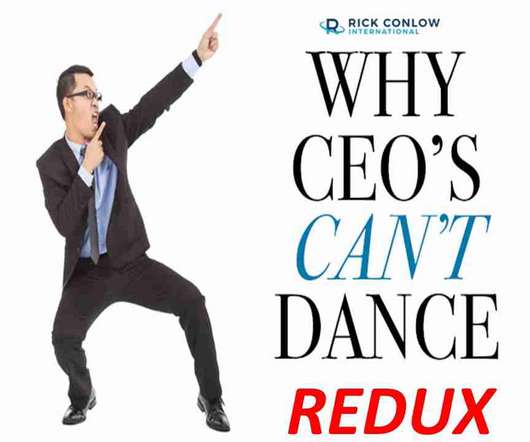Why CEOs Can’t Dance Redux
Rick Conlow
JANUARY 2, 2023
They operate in a bubble and do not attend the party. All lights were off except a spotlight on the presenting manager and the CEO’s reading light. to 17.9%, from 1980 to 2015. According to management studies, a key reason leaders derail is that they do not communicate well. hours a week on people management issues.



















Let's personalize your content